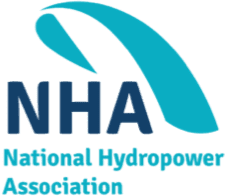Wave-driven desalination systems are proposed water treatment systems that involve reverse osmosis of seawater powered directly by wave motion. Such a configuration would result in drastic feed pressure fluctuations. For a technology conventionally operated with a constant feed condition, the effect of these variable pressures on membrane integrity and performance is unknown. Experiments were conducted with spiral wound membranes coupled to a system capable of producing feed pressure fluctuations of more than 400 psi. Feed composition included 5, 20, and 35 g/L NaCl, and a synthetic seawater at normal and 1.5× concentration. The variable feed conditions included sine-like pressure waves swings of 200–500 and 500–900 psi with frequencies of 1.25, 7.5, and 12 waves/min, and a model-generated random waveform. Between each wave experiment we performed membrane integrity tests at 650 psi and 25 g/L NaCl feed, which showed a 7.4% drop in the membrane’s water permeability coefficient, an 18.4% flux decline, and more than 99% salt rejection over 1770 h of cumulative experimental time. Analysis of permeate samples showed high salt rejection. In general, variable feed pressure had no significant deleterious effect on membrane integrity or performance.


